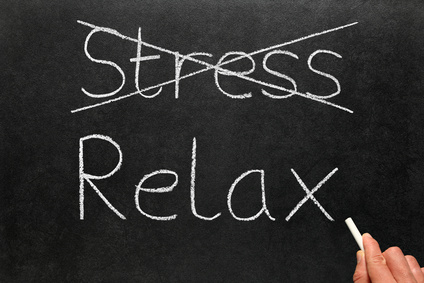 It’s no surprise to anybody that stress is part of life. And although we can’t always control the events that cause stress or anxiety to manifest in our lives, we can control how we respond. Finding ways to manage stress is a critical factor to leading a happier, healthier life. It can also be the deciding factor as to whether or not we sleep well on a regular basis. Let’s take a look at a handful of ways to manage stress — including meditation, exercise and mindfulness.
It’s no surprise to anybody that stress is part of life. And although we can’t always control the events that cause stress or anxiety to manifest in our lives, we can control how we respond. Finding ways to manage stress is a critical factor to leading a happier, healthier life. It can also be the deciding factor as to whether or not we sleep well on a regular basis. Let’s take a look at a handful of ways to manage stress — including meditation, exercise and mindfulness.
Meditation
Meditation comes in many forms. Let’s examine two simple, effective ways to mediate that can be accomplished in as little as three minutes.
First, let’s turn to your smart phone. Healthline.com recently posted an article that details the top 17 meditation apps of 2014 for your Android or iPhone. Two of our favorites are Mindfulness and Mindful, which are very effective and only ask for 3-5 minutes of your time to complete a meditation.
Our second suggestion is much more low tech. Simply find a place in your home where it’s quiet and you can have some privacy. Sit comfortably, with your legs crossed (if possible) and your back straight. You can also sit in a chair if you find it more comfortable. Light a candle, and simply stare at it while you take slow, deliberate breaths. Breathe deeply through your nose into your stomach, and exhale completely through your mouth. At first, you may find that it feels impossible to sit still for even five minutes. But with a little practice, meditating in this way can be quite rewarding. An important tip is to try and clear your mind while you’re performing your meditation. That being said, if a thought enters your mind that’s totally OK, just let it pass as best you can and refocus on your breathing.
Exercise
There’s often a preconceived notion that exercise needs to involve immense amounts of effort. Not true. Even a 10-minute walk around the block at lunchtime is good exercise for your body, and can lower your stress. Bring that deep breathing into your walk for increased meditative benefits. Of course, if you prefer running, yoga, biking, weightlifting or some other form of physical activity, go for it! Doing something you enjoy is far better than doing something you feel you “should” do. The point of exercise is to de-stress, not add stress to your day.
Mindfulness
Mindfulness is defined as the quality or state of being conscious or aware of something; a mental state achieved by focusing one’s awareness on the present moment, while calmly acknowledging and accepting one’s feelings, thoughts, etc. In our tech-centric, fast paced world, it’s sometimes difficult to me mindful. Instead, our thoughts often focus on what’s next on our to-do list — even while we’re still currently working on a task. The best way to stop this cycle is to take a minute or two every few hours to focus on your breath. The simple act of focusing on taking slow, deep breaths is a form of mindfulness, and can help lower stress. While you’re taking these breaths, note how your body feels in the moment, and what your surroundings look like. Can you feel your muscles, and your brain, relaxing a bit?
Thank you for visiting My Better Spine. We hope these tips help reduce your stress.
If you liked this article, please follow us on Facebook for more health-related tips.


